[gallery id=1529]
VW had taken over the Chargemaster facility, which usually features vehicles from several partner manufacturers, to showcase its range of EV and plug-in hybrid vehicles, which now includes the e-Up, e-Golf, Golf GTE and Passat GTE.
“Electric cars are coming. It changes how (dealers) earn their money. You’ve got to be ready,” said brand director Alison Jones, who took over the role in July 2016 following the departure of Alex Smith to Nissan.
[gallery id=1529]
It feels appropriate that AM should catch up with Volkswagen UK in an office above Chargemaster’s EV Centre in Milton Keynes. Located just a few miles from the German manufacturer’s UK base, the setting – a store specialising in the promotion of electric vehicles in the city’s MK One shopping centre – feels like the new battleground for the VW brand as it looks to move on from the ‘dieselgate’ emissions-cheating scandal.
VW had taken over the Chargemaster facility, which usually features vehicles from several partner manufacturers, to showcase its range of EV and plug-in hybrid vehicles, which now includes the e-Up, e-Golf, Golf GTE and Passat GTE.
“Electric cars are coming. It changes how (dealers) earn their money. You’ve got to be ready,” said brand director Alison Jones, who took over the role in July 2016 following the departure of Alex Smith to Nissan.
“The combustion engines side will be very much the bulk of the business for at least the next 10 years,” she said. “That’s why we are now looking out 10/15 years, so that we are ready to adapt.”
Some of that adaptation may come in the form of changes to Volkswagen’s 190-site UK network.
Is VW shrinking its UK dealer network?
Jürgen Stackmann, a member of Volkswagen’s board of management for sales, marketing and aftersales, told Reuters in October 2017 that as much as 10% of the brand’s 3,000-strong European dealer network could go as part of a Europe-wide attempt to deliver efficiency improvements worth £3.2 billion a year by 2020.
Although Volkswagen UK rebutted suggestions that its UK network could shrink, Jones said there may be scope for a more varied mix of sites of various sizes.
“We will always have retailers, but the physical size and shape over the next decade will change,” she said.
“We’re really open to new formats that stay relevant to customers, but help reduce the cost base over the next five to 10 years.
“We have been really open about that with our retailers and our investors, that’s part of the ongoing conversations. We want to work with them to say, ‘What does it need to look like in the next decade?’”
The answer to that question may already be in the UK. Johnson Cars opened Volkswagen’s first retail store in Birmingham’s Bullring shopping complex last summer and Paul Tanner, the managing director of Alan Day Group – which has three large VW retail sites inside the M25 – has told AM that the make-up of city-oriented operations such as his would have to embrace a smaller and, ultimately, cheaper model.
“We know our model needs to change,” said Tanner.
 A significant part of that change comes as a result of Volkswagen Group’s “Roadmap E” plan, announced at the start of September 2017, to introduce 80 new EV or hybrid models by 2025. Intended to help the brand regain its environmental credentials, the plan proposes vehicles capable of covering 600km after half an hour of charging by 2022 and envisages VW selling one million EV and plug-in hybrid models a year in Europe by 2025 (out of about six million global sales).
A significant part of that change comes as a result of Volkswagen Group’s “Roadmap E” plan, announced at the start of September 2017, to introduce 80 new EV or hybrid models by 2025. Intended to help the brand regain its environmental credentials, the plan proposes vehicles capable of covering 600km after half an hour of charging by 2022 and envisages VW selling one million EV and plug-in hybrid models a year in Europe by 2025 (out of about six million global sales).
However, Roadmap E will also require retailers to adapt their sales and aftersales practices. That is almost certain to place further investment demands on dealers, who have recently completed a corporate identity makeover. Staff training and further investment in rapid-charge facilities are also on the horizon.
Although Tanner said such changes were “the sort of thing that will make a difference in consumers’ eyes – seeing Volkswagen in a totally new light, as a true market leader in EVs” he did express concern about the need for high-voltage electricity sub-stations at certain dealerships to facilitate rapid charging.
Jones conceded that substations had been a sticking point, with some retail partners responding: “ ‘It’s one thing having a charger, but if I need a substation…’”
However, she added: “We then need to look across the UK in terms of what can we require within our retailers.”
Outperforming the market
Volkswagen was in a celebratory mood at the start of 2018 after outperforming many of its volume rivals to achieve growth (0.7%) during 2017 (against an overall market fall of 5.7%) and becoming the UK’s second-best-selling car brand, ahead of a faltering Vauxhall (see graphs on page 35).
The result marks an important turnaround in a difficult trading environment after 2016 brought the brand’s first decline in sales – of 7.5%, from 223,784 to 207,028 – since 2009, in the wake of 2015’s dieselgate revelations.
The new Golf hatchback was the UK’s second-biggest-selling car in 2017 with 74,605 registrations, following the Ford Fiesta on 94,533. The new Polo generated 47,855 sales to finish seventh.
Golf and Polo sales helped Volkswagen to perform best among the top three UK brands in terms of maintaining volume, with sales of 208,462 representing a rise in market share from 7.69% to 8.21%.
Ford’s new car registrations fell by 9.71% to 287,396 – its market share fell from 11.82% to 11.31% – as volume rival Vauxhall saw its registrations plunge 22.24% to 195,137, its market share falling to 7.68% from 9.32% in 2016.
Despite BMW ending 2017 down 4.1%, with 175,101 registrations, the premium sector did generate growth – with Mercedes-Benz (180,970) up 6.56% rise and Jaguar (35,544) and Land Rover (82,653) up 2.07% and 3.92% – and Volkswagen has attempted to stake a claim to this segment with the arrival of the Arteon saloon in 2017.
The successor to the Passat CC, the newcomer aims to rival cars such as the Mercedes-Benz C-Class and Jaguar XE. Prices starting at £31,095 also offer dealers the promise of more high-margin sales.
In 2017, VW dealers benefited from the first full year of sales of the new Tiguan and the introduction of the new Golf, Polo and the T-Roc SUV, with the Tiguan Allspace – a larger version of the SUV offering seven seats, with prices starting at £29,370 – arriving at the end of Q1 2018.
The spectre of dieselgate
While VW’s UK market performance has recovered, dieselgate still hangs over the brand and the wider Volkswagen Group. In December, Volkswagen compliance executive Oliver Schmidt received a seven-year jail sentence after pleading guilty to his part in the scandal in the US.
His guilty pleas, to one count of conspiracy to defraud the US and another of violating the Clean Air Act, attracted the longest possible sentence at a court hearing in Detroit.
Of more concern to UK retailers, however, will have been Volkswagen VW Group (UK) director Paul Willis’s admission to Lilian Greenwood MP, the Transport Committee chair, that 16,900 complaints related to the dieselgate technical solution had been received from customers during the final few months of 2017.
The Volkswagen Diesel Customer Forum (DCF) claimed owners have been plagued with breakdowns and poor vehicle performance after the update was carried out.
In his letter to Greenwood, Willis said the technical measures had been implemented in more than six million vehicles across Europe, adding: “The vast majority of customers have been satisfied with the technical measures.”
CI updates and dealer satisfaction
Jones emphasised the effect of a trip to Berlin in which VW dealers were shown forthcoming vehicles last summer as the CI makeover drew to its conclusion.

She said the event had been a catalyst for “more positive conversations” with stakeholders, stating: “We took our retailers to Berlin in the middle of the year and [Oliver] Stegmann, our global head of sales and marketing, said: ‘You invest over a 10-15 year horizon, we want to show you what the future looks like over the next 10 years’.
“He showed a lot of EV product, showing the SEV (super-efficient vehicle) line-up that’s coming, and we have continued that in the UK. There are more positive conversations, which is great.”
Among the major investments was the creation of Inchcape’s Volkswagen West London facility in April 2016, a showcase for many of Volkswagen’s customer-oriented CI developments.
The dealership features a number of 140-inch video walls, which allow sales staff to project images directly onto the big screen to “bring the cars to life in a truly innovative way”, Volkswagen said.
Meanwhile, web-enabled touchscreens allow customers to search Inchcape’s 2,000-strong nationwide stock of used
Volkswagen vehicles and staff can demonstrate vehicle features via iPads.
The roll-out of CI investments during a period which has seen dealers working to process more than 820,000 dieselgate recalls through their workshops has been among the influences on the brand’s recent NFDA Dealer Attitude Survey results.
However, Jones said the realisation of that investment and stabilising sales performance had improved the mood among dealers.
In the Winter 2016 survey, Volkswagen retailers rated the brand 3.9 out of 10 overall (average: 6.1), just ahead of last-placed Citroën (3.8).
At the time, dealers rated the future profit return presented by the brand as 3.5 (average: 5.6), leaving it bottom of the pile.
In the latest results, published in the NFDA’s Summer 2017 survey, Volkswagen’s overall rating rose to 5.3 (average: 5.6) with the prospects of future profit return boosted to a 5 (average: 5.2).
“We have moved right up into the middle of the pack and I think that’s a fair reflection of where we are,” said Jones.
“Network profitability was a key focus area for us and that’s improved both in current profitability, but also the future profitability results improved dramatically.”
Jones said she immediately set about building closer ties with Volkswagen’s retail partners when she took the reins last year and sandwiched her interview with AM in Milton Keynes between trips to see partners in Glasgow and Edinburgh.
She claimed that retailers’ feedback is becoming more positive, stating that the NFDA results “reflect what the network are saying to me”.
Building a new type of Volkswagen store
Johnsons Cars became the first retail group to trial the new Volkswagen Store concept with a manufacturer-supported opening at Birmingham’s Bullring shopping centre last summer.
 The Redditch-based AM100 group operates the site and supports the facility with staff and aftersales provision at its facility less than three miles away at Lawley Middleway.
The Redditch-based AM100 group operates the site and supports the facility with staff and aftersales provision at its facility less than three miles away at Lawley Middleway.
However, Jones said Volkswagen had worked with a retail consultant to develop the store, which attracted 70,000 visitors in its first three months following its July opening. Volkswagen UK funded much of the development.
On the choice of location and network partner, Jones said: “We wanted to partner with a retailer so that it was in their area, so that you could see how it could work in combination with a traditional dealership as well. They run and staff [the store] and it’s their team driving the commercial aspect of it, so it’s a real test.
“Because it’s a trial, Johnsons and us collectively have said ‘This is what we want to see in terms of sales’, but we don’t know. You can’t set a traditional sales target because you’re testing it.”
Jones said Volkswagen was keen to learn how customers made use of the new facility, whether they simply paid a visit and then headed to a nearby dealership to progress their interest or were willing to complete the whole buying journey there.
There is also a desire to see how a car’s presence in the store – which accommodates three cars, with a range of six available for test drives nearby – affected its sales.
“It’s not that we’re going to roll it out and expect people to do it as a marketing ploy,” she added.
“It’s got to stand up commercially.”
Used car demands
Along with Volkswagen’s corporate identity demands come dealer standards related to used cars and aftersales.
At a time when many retailers are keen to grow their used car operations, Jones was sticking to the brand’s policies on maintaining a Volkswagen-dominant mix on the forecourts.
Jones said its Das Welt Auto approved-used scheme demanded retailers had a Volkswagen-only stock of used cars.
Volkswagen UK’s official remarketing channels made up about a fifth of its retailers’ overall stock sourcing, according to Jones, who conceded that some dealers had questioned its cost.
She said: “It’s a good source of stock, but it has to commercially stand up and I’ve been really clear with my team about that.”
Volkswagen dealers have told AM how their aftersales operations were affected by the dieselgate recalls.
They intimated that while bolstering profits with a steady stream of warranty work, such large “recalls” can compromise the satisfaction of retail customers.
Jones praised Volkswagen’s retail network for its work to redress the dieselgate situation, stating that the recall process was “75% complete”.
She said the brand had placed a new emphasis on attracting aftersales work for retailers whose workshops had become more efficient as a result of accommodating the additional volume of aftersales business.
“It’s been our focus since the middle of the year, Q3 and Q4 saying ‘okay, how do we get new customers in? How do we get that business retailers were seeing (through warranty work) back again’ and focused on it.”
Volkswagen embarked on a marketing push emphasising fixed prices and promise of while-you-wait servicing in mid-2017, Jones said, adding that it was also in the process of completing a redesign of its website to make online service booking easier and extend live chat to all pages.
In Germany, the brand recently completed the launch of its new customer portal “Volkswagen We”, a platform which allows customers to book servicing appointments directly using a smartphone for the first time.
New dealer contracts
Among the other changes Volkswagen will make to its UK network in 2018 are a comprehensive training package and changes to dealer contracts.
Jones said the franchise’s contracts were in a constant state of appraisal, but said she would aim to “remove complexities and bureaucracy” in 2018. However, she refused to comment on the detail of the changes.
The brand will seek to partner with larger retail groups in order to deliver efficiencies in the training of staff as the brand moves towards EVs, placing new pressures on the Volkswagen Group’s National Learning Centre in Milton Keynes.
A new programme of e-learning has been introduced to help reduce the number of days staff members have to spend away from their respective employers for training.
Jones added: “We also recognise dealer group training. Some of our larger dealer groups have great sales training. One of our dealer groups, in particular, has a really big academy of their own and we’re looking to see if we can then accredit them for our qualifications.”
Perhaps most important for Jones and her retail partners is the profitability of the network. She said: “We need to be profitable for our retailers”.
Asked what 2018 held for the brand and its partners, Jones said: “Growth, definitely growth”. Whether that growth is in sales, profitability or market share, however, she would not say.
Login to continue reading
Or register with AM-online to keep up to date with the latest UK automotive retail industry news and insight.

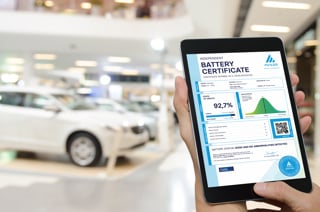
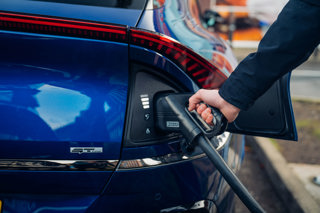
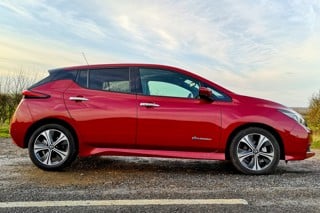
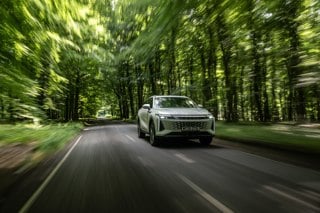
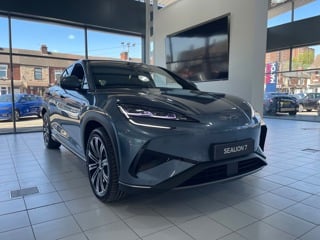


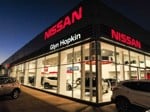

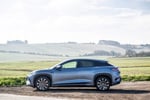
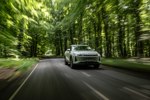

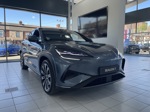
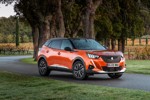





Irishboy4 - 21/02/2018 09:06
Yes as is mentioned in the article the Dieselgate scandal that is still hanging over VW group. They have either paid our or set asdie $44 billion for approx. 430,000 cars in the USA, in the UK 1.1 million were affected and nothing has been paid in compensation. Additionally the CEO of VW USA Schmidt was jailed for seven years, here in the UK no one from VW has been arrested as yet. Surely someone in the UK must be prosecuted as responsible for this mass act of fraud?